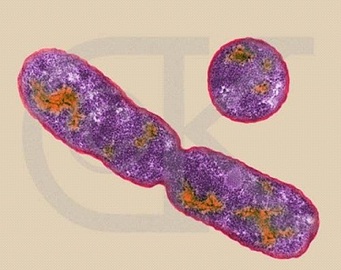Introduction
Bacteria are microscopic unicellular organisms which are the most abundant living creatures on earth. They are found everywhere, in water, in soil, in air, on glaciers, and in snow. These diverse creatures exist in hundreds of different forms and are of many types differentiating in their living habitats, resistance in various conditions and their economical importance.
History

Though usually bactria are associated with diseases not all bacteria are bad. In fact, there are certain bacteria that are so essential that our life depends on them. They are an important component in the food chain as they are responsible for decomposing nutrients in the soil which are taken up by plants which are the primary producers of the food chain. In humans, bactria are naturally found in the stomach and digestive tract. These bacteria assist in the process digestion. These are just are just few examples of friendly bacteria, good and helpful bacteria have a lot other economical applications like in cheese making, even certain antibiotics used to kill other microorganisms are bacteria themselves. However there are other bacteria that are so harmful and dangerous that can cause severe and fatal diseases in humans in plants. These diseases can range in their severity. Some common diseases caused by bacteria are: sore throat, pneumonia, cholera, typhoid, tuberculosis, and botulism.
Features
Bactria are single celled organisms because of which their mode of reproduction and multiplication is simple and quick. They multiply by a process called binary fission, a type of cell division in which a single cell divides into two daughter cells within a time span of ten to twenty minutes. When a foreign disease causing bactria enters in to the system of humans, animals or plants it first takes time to get used to the new environment, this is what we call the lag phase. From lag phase bactria enter in to the log phase which is the phase where the bacterial cells start to divide rapidly by drawing nutrients from their hosts. That’s when the first symptoms of disease caused by any bacteria start to appear. After the lag phase, bacteria enter into the stationary phase in which the bacteria population attains an equilibrium and the growth rate is steady. The stationary phase enters into the last phase of bacterial multiplication, the death phase where due to replenishment of nutrients from the environment the bacterial population begins to die. Within a population of humans or different organisms bacteria can spread fast by various modes of transmissions such as air, water, food and physical contact.
Tips and comments
If symptoms of bacterial disease start to appear, it shows that bactria have started to rapidly multiply. This is the time when a drug or an antibiotic should to be taken to halt the rapidly multiplying bacterial population before it reaches the death phase itself because by that time all nutrients within a system will be taken up which can cause death in the individual. Also in order to stop bacterial spreading one must always be careful around those individuals who are suffering from a particular bacterial disease.
Comments
Most Recent Articles
-
How To Treat Microbe Disease
Have you experienced some diseases in the past or even at the moment yet have no idea what is causing it? There is a big chance that what is causing your suffering is one of the microbe that...
-
Five Types Of Bacterial Diseases
Some bacteria are harmless and some are useful, however, bacterial diseases are caused by disease producing bacteria Some of the bacterial diseases in humans are: 1] Tuberculosis - This is...
-
How To Identify Bacteria Diseases
Bacteria diseases are so rampant in our world. Many people do not always identify sickness that is caused by bacteria. It is important to have information on diseases and their causes; this ...
-
How Antibiotics Work
Antibiotics are a commonly prescribed type of drug. Broken up, antibiotics means “against life” in Greek. This of course means against the life of bacterial infections. Antibioti...